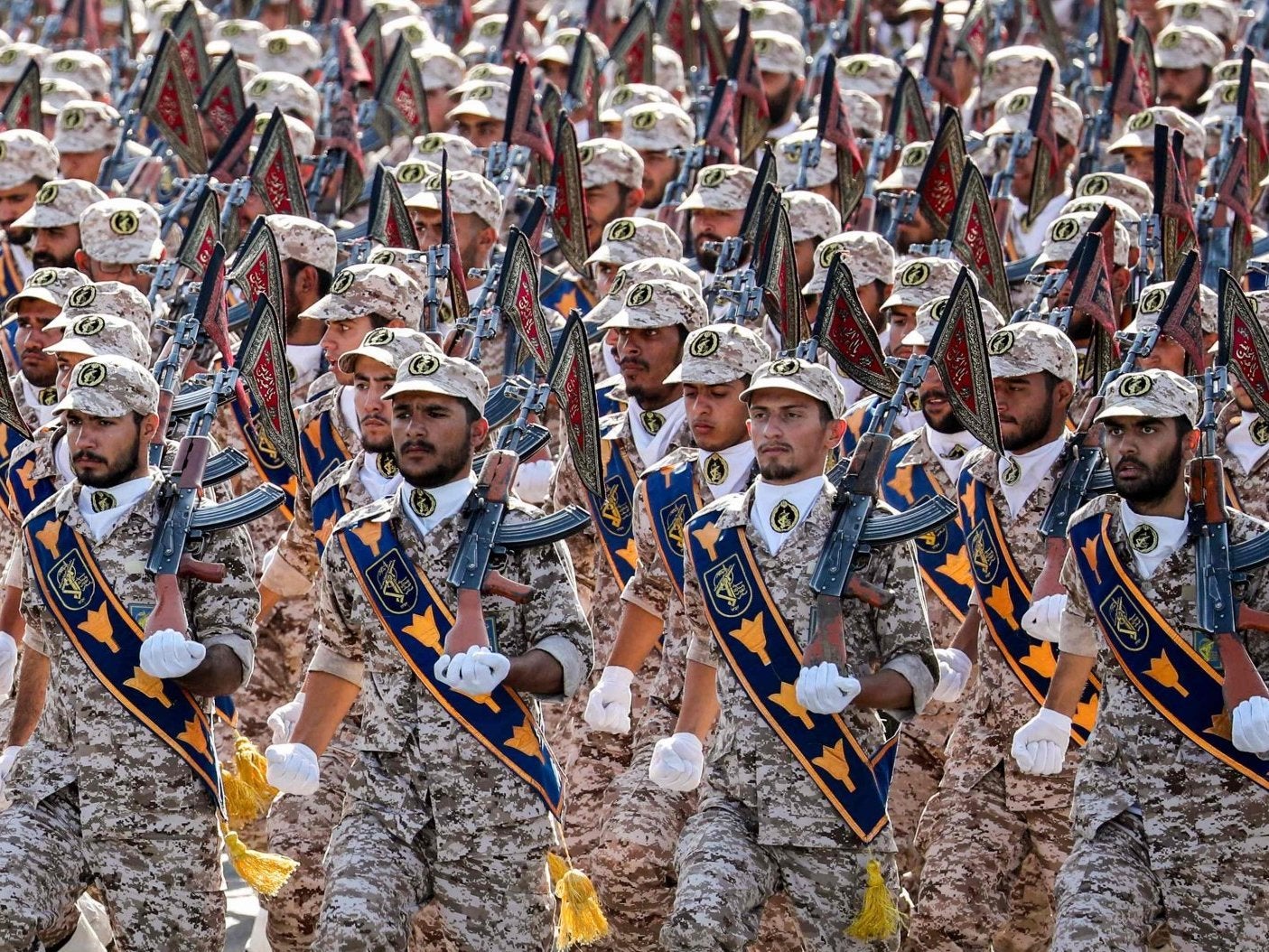Declaring Iran’s IRGC a terrorist group would destabilise UK’s definition of terrorism, Suella Braverman warned
Exclusive: Watchdog says allies’ forces would be brought into scope of terrorism laws if government goes ahead with ban

Declaring Iran’s Islamic Revolutionary Guard Corps a terrorist organisation would destablise the UK’s definition of terrorism and put international allies’ military forces in scope of the law, a watchdog has warned.
The government is considering proscribing the force, which is a branch of Iran’s armed forces, under terror laws that have never before been used against a state body.
The Independent understands that the intelligence agencies and counter-terror police are being consulted on the move, which would be a departure from previous convention that caused the Salisbury poisonings to be formally treated as “hostile state activity” rather than terrorism.
There are practical concerns about the impact of proscription, which would create a wide spectrum of associated criminal offences including inviting support and displaying, publishing or sharing online IRGC flags and symbols.
Jonathan Hall KC, the Independent Reviewer of Terrorism Legislation, said that although the IRGC is an “oppressor at home and exporter of violence abroad”, formally naming it a terrorist group would have far-reaching consequences.
“Proscribing a state entity under the Terrorism Act 2000 would depart from consistent and decades long UK policy, and calls into question the definition of terrorism which, to date, has proven practical and effective,” said a report seen by The Independent.
“If state forces are capable of being ‘concerned in terrorism’, the question of how the definition of terrorism applies to other state forces will have to be addressed, at risk of upsetting the settled meaning of terrorism in domestic law.”
The IRGC has already been declared a terrorist group by the US, Saudi Arabia and Bahrain, and countries including France and the Netherlands are considering support for an EU-wide measure, but the legal threshold is different in each country.
Mr Hall said the UK’s legal definition of terrorism, including the use or threat of violence for the purposes of advancing a political cause, could already cover armed conflict between nation states but an “enduring policy position” has seen the government exclude it.
The government’s push to proscribe the IRGC has been sparked by the discovery of at least 10 recent plots to kidnap or kill British and UK-based perceived “enemies of the Iranian regime”, which were revealed by the head of MI5 in November.
Director general Ken McCallum said: “Iran projects threat to the UK directly, through its aggressive intelligence services.
“We work at pace with domestic and international partners to disrupt this completely unacceptable activity … the UK will not tolerate intimidation or threats to life towards journalists, or any individual, living in the UK.”
Mr Hall said that terrorist groups are formally banned by the home secretary, taking into account factors including the nature of their activities, the threat to the UK and British nationals overseas.
But he warned that if Suella Braverman proscribes the IRGC, “the logic would be that all state forces, including those of allies, must also ‘be concerned in terrorism’ some or all of the time”.
He added: “It is one thing to characterise paramilitaries and individuals who would subvert the state through violence as terrorists; but quite another to apply the word terrorist to state bodies who conventionally are considered to enjoy a monopoly over the legitimate use of violence.”
When declaring the IRGC a terrorist organisation in 2019, the US said the Iranian regime’s “use of terrorism as a tool of statecraft makes it fundamentally different from any other government”, following bombings and assassinations.
But Mr Hall said the UK’s legal definition in terrorism did not support any distinction between justified or unjustified violence, different methods of killing - such as conventional warfare or targeted assassination - or the kind of political ideology advanced.
The watchdog wrote that arguments that the “IRGC is especially wicked, or its programme of action particularly harmful” have no basis under the Terrorism Act, nor does its deviation from international humanitarian law.
A government spokesperson said: “Whilst the government keeps the list of proscribed organisations under review, we do not comment on whether a specific organisation is or is not being considered for proscription.”
Subscribe to Independent Premium to bookmark this article
Want to bookmark your favourite articles and stories to read or reference later? Start your Independent Premium subscription today.

Join our commenting forum
Join thought-provoking conversations, follow other Independent readers and see their replies